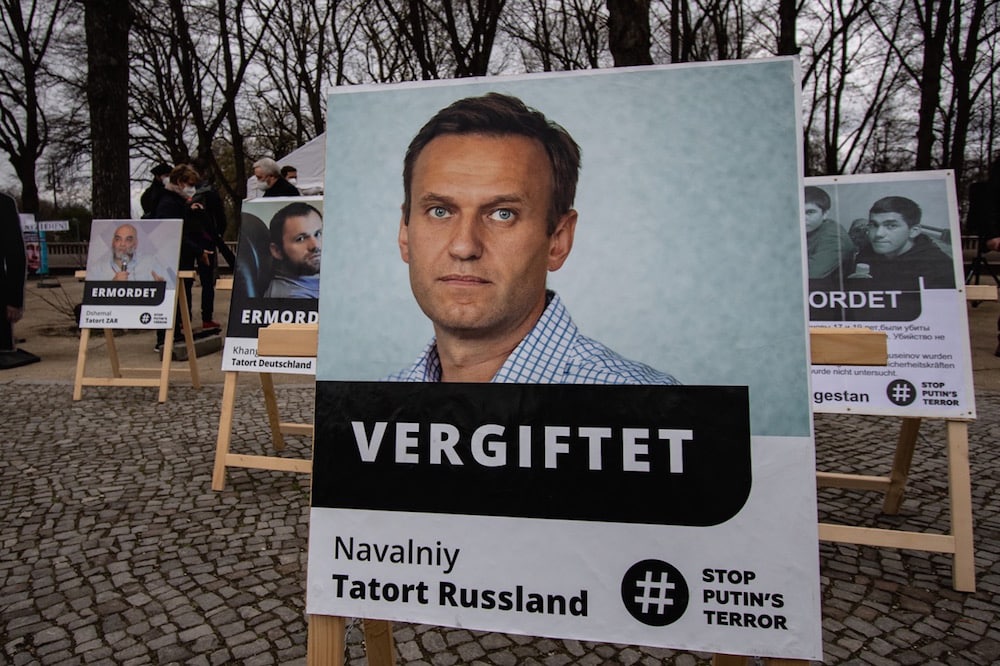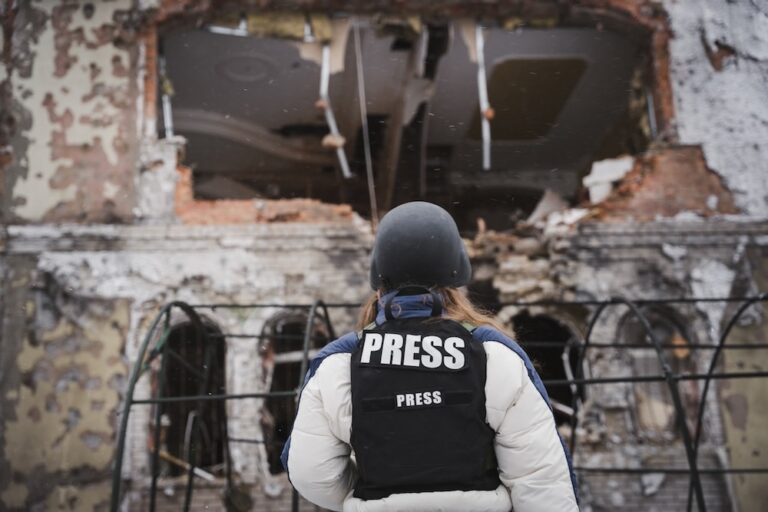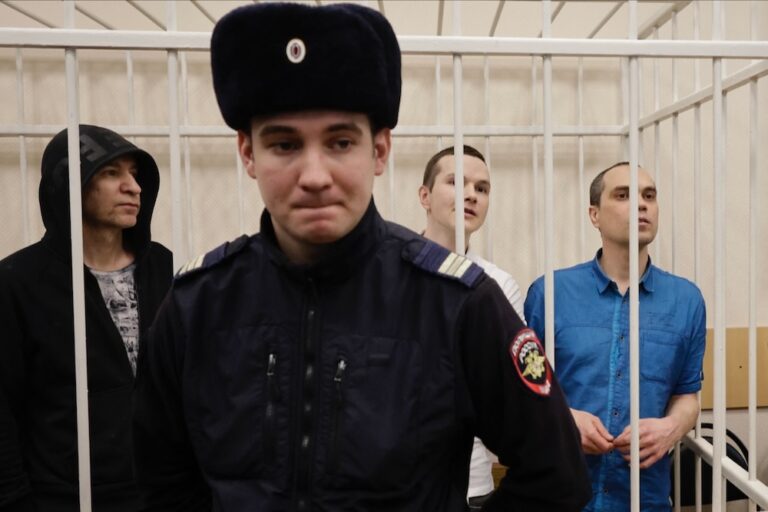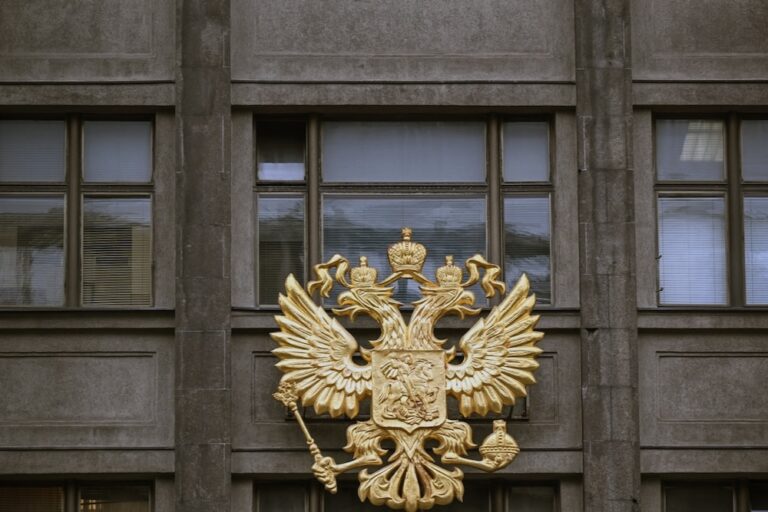The Moscow prosecutor’s office is seeking a court ruling to declare several groups linked to Navalny “extremist”. If this designation is imposed, these groups' activities would be banned and their staff members and supporters could face criminal prosecution.
This statement was originally published on hrw.org on 19 April 2021.
The Moscow prosecutor’s office is seeking a court ruling to declare several organizations affiliated with the jailed opposition figure and vocal Kremlin critic Alexey Navalny “extremist,” Human Rights Watch said today.
If the designation is imposed, these organizations’ activities would be banned, and their staff members and supporters could face criminal prosecution and possible prison time. The prosecutor’s office should immediately withdraw its request and end this latest attempt to silence and oppress any opposition and dissent in the country.
“Pursuing an extremist label against these organizations takes the Kremlin’s persecution of vocal critics to a new low,” said Hugh Williamson, Europe and Central Asia director at Human Rights Watch. “It is ill-founded, scandalous, and another sign of the Kremlin’s rejection of fundamental democratic rights and determination to hold onto power at all costs.”
On April 16, 2021, the Moscow prosecutor’s office announced that it had applied to court to have three organizations affiliated with Navalny designated as “extremist”: the Anti-Corruption Foundation (FBK), the Foundation for Protection of Citizens Rights, and Navalny’s headquarters. Moscow prosecutors, upon the instructions of the Prosecutor General’s Office, initiated an inspection of all three at the end of March.
On April 19, Moscow City Court stated that it had registered the prosecutors’ lawsuit. The same day, FBK director Ivan Zhdanov posted on social media that the FBK had learned that the court hearing was scheduled for April 26. He said that court officials told FBK’s lawyer, who had gone to the court to study the case file, that the case has been classified under the state secrets law and that the lawyer would only be allowed to read the file on the day of the hearing.
Zhdanov’s post said that the court officials refused to give him a copy of the decision that the hearing was scheduled for April 26. Court officials also told FBK’s lawyer that they would be the only person, aside from the state authorities, allowed to attend the hearing for FBK.
The prosecutors’ statement does not provide any concrete details explaining the authorities’ justification for seeking the extremist designation. Instead, it states that the organizations, “under disguise of liberal slogans,” were creating conditions for destabilizing society and the political situation. The statement also claims the organizations are “creating conditions” to change Russia’s constitutional order using a “color revolution scenario.”
The prosecutors’ statement does not include any information alleging that the listed organizations in any way used, planned, or were involved in inciting violence.
The statement accuses the three organizations of carrying out activities on behalf of foreign and international groups banned in Russia as “undesirable.” The statement does not specify which “undesirable” groups it is referring to or how the organizations were allegedly carrying out such activities.
Under the 2015 Russian law on “undesirable organizations,” any foreign or international organization that allegedly undermines Russia’s security, defense, or constitutional order can be designated and banned as “undesirable.” Continued involvement with such organizations can be punished by administrative – and in the event of repeated “offense” – criminal sanctions, including imprisonment. Since 2015, 31 groups have been placed on Russia’s “undesirable” blacklist.
The FBK’s director, Ivan Zhdanov, and the head of Navalny’s headquarters, Leonid Volkov, released a public statement denouncing the decision as an attempt to paint anyone disagreeing with Kremlin as an extremist and noted that it comes in advance of Russia’s September parliamentary elections and countrywide pro-Navalny protests that the organizations are planning.
They emphasized that their organizations have always conducted their activities entirely peacefully and legally. They also noted previous unsuccessful efforts by Russian authorities to destroy them using criminal prosecution, repeated raids on their offices, and confiscation of their electronics, as well as the presumed attempt on Alexey Navalny’s life in August 2020.
The move against the three organizations is yet another example of Russian authorities using “extremism” legislation to silence anyone deemed to pose a peaceful political threat to President Vladimir Putin, as well as broader dissent and criticism of the government, Human Rights Watch said.
The authorities have targeted a number of religious groups with the same legislation. For example, in 2017, Russia’s Supreme Court designated the Jehovah’s Witnesses extremist. Since then, the authorities have conducted countrywide raids against the group, arresting and prosecuting hundreds of followers and leading to severe fines and lengthy prison sentences.
If the court agrees to designate the three groups extremist, they will be outlawed and their numerous staff members and supporters across the country will face great personal risk, including criminal prosecution. Any mention of these groups in the media would have to be accompanied by a disclaimer about their “extremist” designation.
Such blatant interference with freedoms of expression and association violates fundamental human rights guaranteed by the European Convention on Human Rights, the International Covenant on Civil and Political Rights, and Russia’s Constitution. International law requires that any restrictions on these rights must be lawful, necessary, and proportionate. Failure to meet that standard, as in these abusive designation efforts, violates Russia’s obligations under international law.
In recent years, Russian authorities have retaliated against, rather than engaged with, activists, journalists, and others who shed light on particularly sensitive problems. Among them are corruption, election integrity, access to justice, and police violence against peaceful protesters, issues that are the focus of the three groups facing the ban.
“Russian authorities should stop responding to public grievances and the political opposition by retaliating against the messenger and violating Russians’ fundamental rights,” Williamson said. “The authorities should engage with their critics rather than push them – and themselves – further into a corner.”



